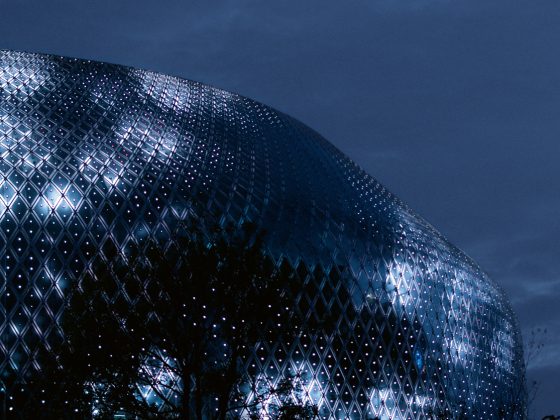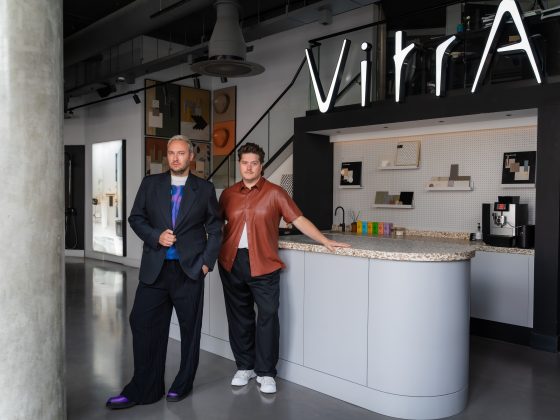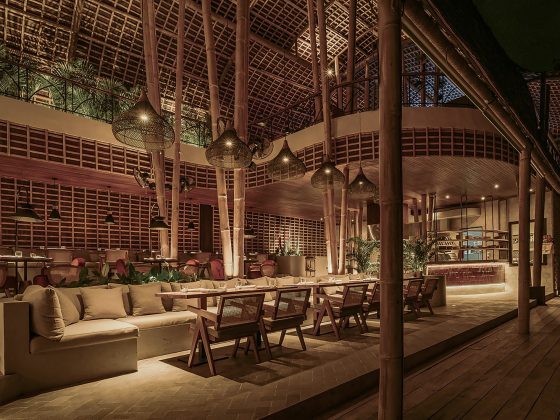

MARSEILLE, FRANCE

In the heart of Marseille’s bustling port, an architectural gem harks back to a bygone era, bearing witness to the city’s rich maritime history. The project in question involves the meticulous refurbishment and transformation of an 18th-century warehouse into a contemporary flat that seamlessly blends historical significance with modern aesthetics. Guided by the architects’ vision, this unique endeavor embarks on a journey to preserve the warehouse’s historical essence while embracing the challenges of a dramatic change in function.



The most striking feature of this warehouse conversion is the awe-inspiring stairwell corridors, reminiscent of a time when animal-drawn loads were laboriously hauled upstairs. These palatial proportions serve as an eloquent reminder of the building’s rich heritage, providing a captivating narrative thread that weaves through the entire project.


The primary challenge faced by the architects was the harmonious integration of their architectural and aesthetic interventions within a historical context. To convert this space from a utilitarian warehouse into a comfortable living environment, they needed to navigate the inherent paradoxes and complexities of such a transformation.


The flat itself is divided into two distinct volumes: a convivial daytime space and an enclosed, subdued bedroom. Two monumental original windows dominate the living room, generously bathing the area in natural light. Here, the space has been opened up in the spirit of a loft, unified by a striking concrete slab. A sculpted island, crafted from the same material, serves as a focal point, effortlessly merging form and function. At the rear of the flat, a raised platform offers a bird’s-eye view of the Old Port and its perpetual dance of boats.


The architects’ mastery in creating fluid transitions is showcased through the use of solid oak furniture. Varying thicknesses of oak act as visual bridges between the off-white living area and the bedroom, cocooned in blackout curtains. This wooden structure ingeniously conceals essential technical elements, such as heating and air conditioning systems, a fully-equipped kitchen, a library, a laundry room, and a dressing room. Throughout the flat, the warmth of brass fittings complements the juxtaposition of wood and concrete, creating a harmonious visual dialogue.

The bedroom, designed as a cozy and intimate retreat, hides a troglodyte shower room, swathed in waxed concrete. This organic distribution of volumes adds depth and intrigue to the flat’s narrative. As one gazes from this sanctuary, rough-hewn wooden beams punctuate the lines of flight, adding further layers of historical texture.

In the living room, the concrete extrusion, transformed into an island, pays homage to a washerwoman’s basin, symbolizing the joy of conversation and camaraderie that transcends time. It serves as a tangible link between the flat’s storied past and its vibrant present.

This remarkable project in Marseille’s port is a testament to the architects’ skillful fusion of history, aesthetics, and functionality. By preserving the warehouse’s historic features and weaving them into the fabric of modern living, they have created a living space that not only embraces the past but also propels it into an exciting future. The conversion of this warehouse into a flat stands as a shining example of how architecture can breathe new life into the echoes of history.
Architects: Enzo Rosada architecte
Area: 100 m²
Year: 2021
Photographs: Stéphane Aboudaram | WE ARE CONTENT(S) SEGUIR
Manufacturers: Decospan, Diotti, Foscarini, Heytens, Horus, Ligne Roset, Marius Aurenti, Meljac, Zolpan
Lighting Company: Foscarini











